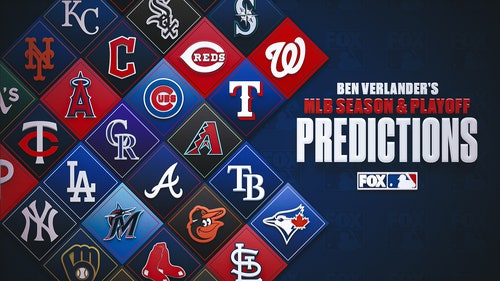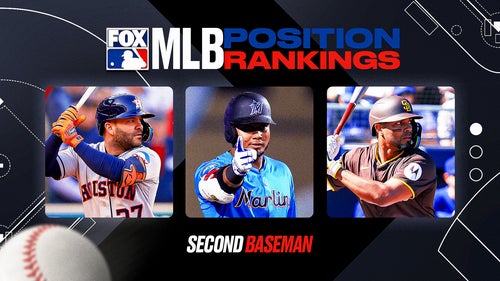





































































































































MLB: Don Mattingly Thinks Attitude Toward Strikeouts Has Slowed Games
Marlins skipper Don Mattingly believes a growing acceptance of strikeouts among MLB hitters and teams has contributed to sluggish games.
The pace of play debate has flared up again with MLB's new rule change regarding intentional walks. While the decision to do away with the four-pitch free pass has proved polarizing among fans, the topic of how to speed up games isn't disappearing anytime soon. Miami Marlins manager and 14-year former big leaguer Don Mattingly has another idea about why games have slowed down in recent years.
According to an AP report via ESPN.com, Mattingly believes players' increased willingness to strike out has negatively impacted the pace of major league games.
"Analytically, a few years back nobody cared about the strikeout, so it's OK to strike out 150, 160, 170 times, and that guy's still valued in a big way," Mattingly said. "Well, as soon as we start causing that to be a bad value — the strikeouts — guys will put the ball in play more. So once we say strikeouts are bad and it's going to cost you money the more you strike out, then the strikeouts will go away. Guys will start making adjustments and putting the ball in play more."
It's true there has been a significant shift in how hitters and teams view strikeouts. What was once an undesirable, even embarrassing outcome for a batter is now seen as an acceptable, even necessary evil as long as the player makes up for it in other ways. Usually that involves hitting home runs. Lots of them.
More from Call to the Pen
The league has seen its share of players who boast 40+ home run power but also own batting averages that flirt with the Mendoza line. For MLB clubs, it's a matter of weighing the pros and cons. You plug a guy into your lineup knowing he'll strike out once every three plate appearances or so, but if he's also sending the ball out of the park at a robust clip, you'll find a way to get over it. He becomes something of a blunt instrument rather than an all-around performer.
Of course, you can't just snap your fingers and expect an instant, widespread philosophy shift to occur throughout Major League Baseball. But perhaps there have been signs that teams are starting to sour a bit on all-or-nothing sluggers. Mark Trumbo and Chris Carter led their respective leagues in home runs in 2016, but both had to wait a good while on the free agent market before they signed. Their career strikeout rates of 25 and 33 percent, respectively, had a lot to do with that. Prodigious home run totals are eye-catching, but clubs aren't necessarily going to pay for them alone.
Per the AP report, Mattingly also says that umpires should start enforcing the batter's box guidelines from 2015 more consistently as another way of speeding up games. Hitters were required to keep one foot in the box between pitches unless they had swung at the previous offering. While that rule wasn't enforced universally, it did seem to trim some noticeable minutes off the average game time. Enforcement went out the window last year, and games lagged again as a result. Getting back on track could at least bring games back down to 2015 levels (i.e. under the three-hour mark).
The pace of play issue is complex and has a variety of contributing factors. It's unlikely any one thing is going to fix it completely to everyone's liking. Mattingly's notion about more hitters looking to put the ball in play would probably make a larger difference than the intentional walk change. However, it's unlikely that players are going to force themselves to alter their habit-formed approaches just for the sake of improving the pace of games.

20 Best pitchers in MLB 2024: Ranking the top 20 starters

2024 MLB predictions by Ben Verlander: Standings, playoffs, World Series

Ranking the 10 best closers in MLB 2024

Shōta Imanaga, Colton Cowser headline MLB's 10 best rookies

Ranking the 10 best second basemen in MLB 2024

What is Bobby Bonilla Day? Explaining the New York Mets' ongoing contract saga


20 Best pitchers in MLB 2024: Ranking the top 20 starters

2024 MLB predictions by Ben Verlander: Standings, playoffs, World Series

Ranking the 10 best closers in MLB 2024

Shōta Imanaga, Colton Cowser headline MLB's 10 best rookies

Ranking the 10 best second basemen in MLB 2024

What is Bobby Bonilla Day? Explaining the New York Mets' ongoing contract saga
